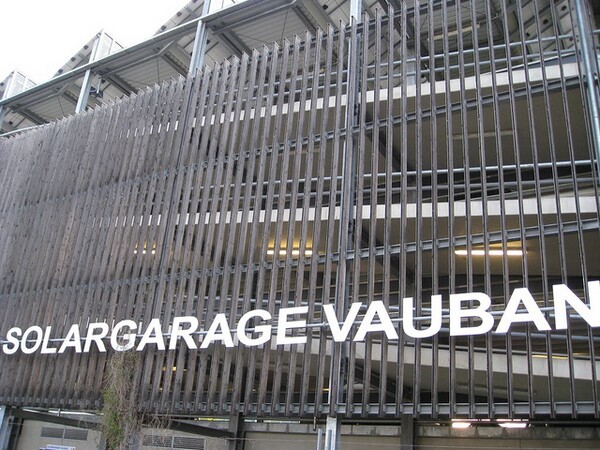Show Me the Money: Can Utilities Survive the Shift To Renewable Energy?

German rooftop solar, upending the old order | Photo: Jute Marketing/Flickr/Creative Commons License
The explosion in rooftop solar and other forms of distributed renewable energy has put German utilities in a bit of a bin, according to a market analyst working for Reuters. As more and more property owners choose to generate power with their own solar and wind facilities, large utilities are seeing a loss in income -- especially those whose business models still rely on centralized power generation.
Related

What Are? PACE Loans, Feed In Tariffs and Net Metering
According to analyst Gerard Wynn, the burgeoning distributed generation scene in the world's most-solarized county has lowered peak demand for power and depressed prices for that power. Two-fifths of the renewable energy generating capacity in Germany is owned by private individuals, says Wynn, which means more and more of the gain from ratepayers' paying their bills ultimately goes back into the pockets of some of those same ratepayers. Germany's robust Feed-In Tariff law continues to encourage private individual investment in small-scale solar, while large utilities aren't nearly as interested in the renewable sector. In 2010, four-fifths of Germany's renewable energy capacity was made up by installations of under a megawatt in capacity, and 85 percent of that was on private rooftops. That majority has only increased in the two years since.
The result, as Wynn says, quoting a report from London-based renewable energy investment firm Alexa Capital?
The expansion of renewable generation has been so rapid that power utilities are losing control of their markets.
The phenomenon is better-advanced in Germany than elsewhere, but the notion that distributed energy poses a threat to large investor-owned utilities' business plans isn't in any way limited to Germany. For a century, utilities have relied on the assumption that their business was generating power in remote locations, then transmitting that power long-distance to consumers. Rooftop solar threatens to change that.
Just as the recording industry was shaken to its core by the advent of technology that put music reproduction and distribution into the hands of its former customers, power companies are now facing what's probably an inevitable shakeup in their business landscape. People who had been consumers will become producers. Whether utilities respond flexibly, by becoming brokers of the power we all generate, or dig in their heels and resist any change to their remote generation business model remains to be seen.
ReWire is dedicated to covering renewable energy in California. Keep in touch by liking us on Facebook, and help shape our editorial direction by taking this quick survey here.